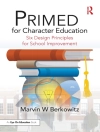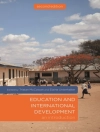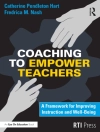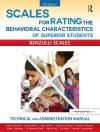Many professional, high-quality surveys collect data on people′s behaviour, experiences, lifestyles and attitudes. The data they produce is more accessible than ever before. This book provides students with a comprehensive introduction to using this data, as well as transactional data and big data sources, in their own research projects. Here you will find all you need to know about locating, accessing, preparing and analysing secondary data, along with step-by-step instructions for using IBM SPSS Statistics.
You will learn how to:
- Create a robust research question and design that suits secondary analysis
- Locate, access and explore data online
- Understand data documentation
- Check and ′clean′ secondary data
- Manage and analyse your data to produce meaningful results
- Replicate analyses of data in published articles and books
Using case studies and video animations to illustrate each step of your research, this book provides you with the quantitative analysis skills you′ll need to pass your course, complete your research project and compete in the job market. Exercises throughout the book and on the book′s companion website give you an opportunity to practice, check your understanding and work hands on with real data as you′re learning.
Inhoudsopgave
Chapter 1: Secondary Data Analysis: The Evidence is Out There
Chapter 2: Understanding the Basics of Statistics
Chapter 3: Doing Secondary Data Analysis in Five Minutes
Chapter 4: Getting Started with SPSS
Chapter 5: Dealing with Data Documentation
Chapter 6: Replicating Published Analyses
Chapter 7: Preparing Your Data
Chapter 8: Managing and Manipulating Data
Chapter 9: Introducing Linear Regression
Chapter 10: Getting Started with Logistic Regression
Chapter 11: Using Binary Logistic Regression
Chapter 12: Practising Regression Skills With Replication
Chapter 13: A Look Back: How to Enjoy ‘An Avalanche of Numbers’
Over de auteur
From 2009 to 2014 John was the Strategic Advisor to the Economic and Social Research Council (ESRC) on quantitative methods training overseeing the genesis and launch of the Q-Step programme. From 2015 to 2020 he was Strategic Advisor to the British Academy on Quantitative skills and a member of the British Academy’s High Level Strategy group on Quantitative Skills. John is a Chartered Statistician and was Vice President (Professional Affairs) of the Royal Statistical Society 2019-20. He has held research grants from the European Commission, UK ESRC, British Academy, Leverhulme trust and British, Spanish and Catalan government departments.












